medicinal mushroom blend
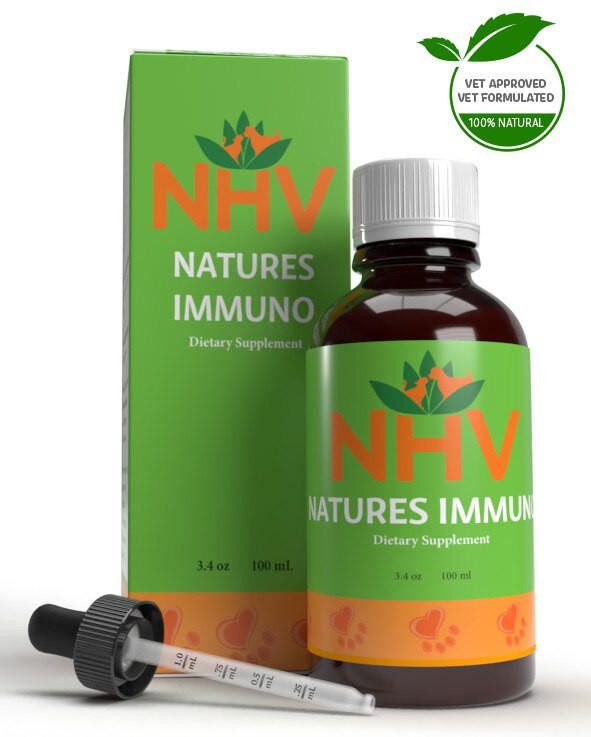
free shipping over $100 (USA & Canada)
1-877-937-4372 the pet expert hotline
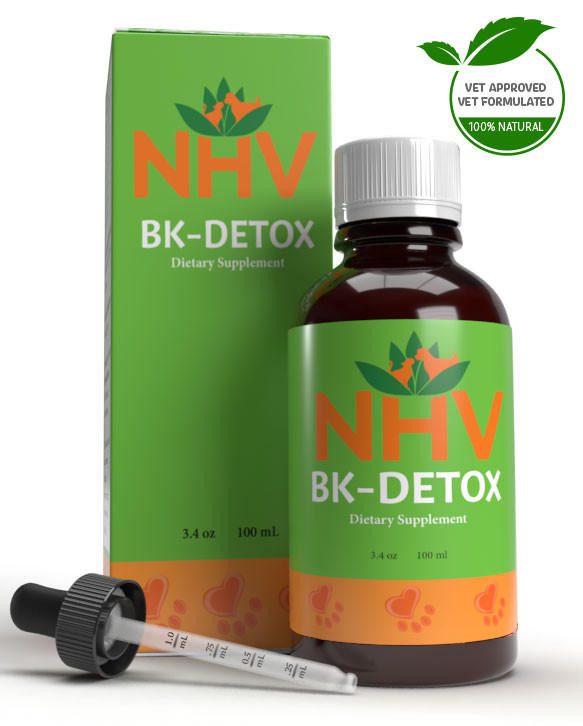
Cat Immune System Booster, Cancer Support, Gentle Detox, and Blood Cleanser

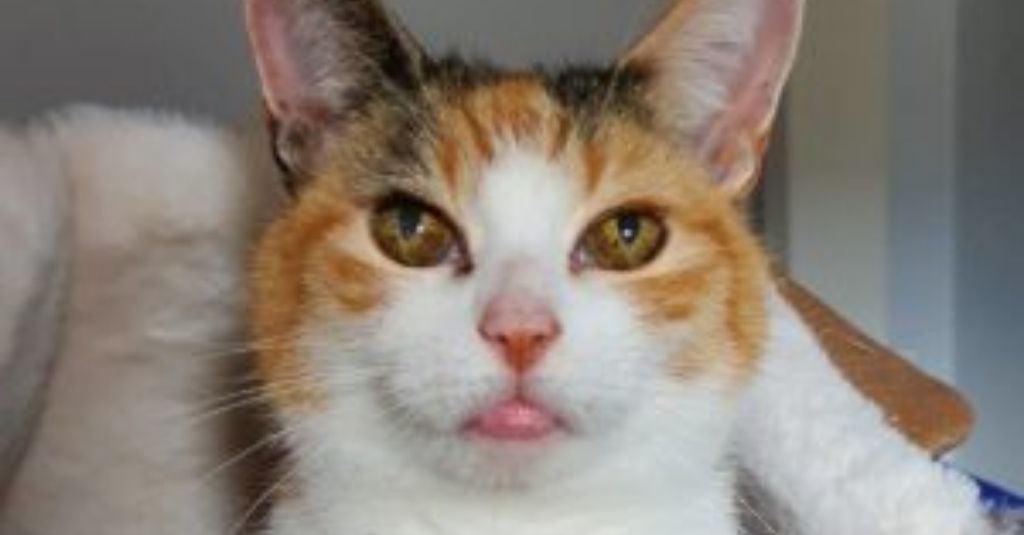
Amanda, from Nature Angel UK, reached out to us when her family fur baby, Roxy, appeared to have an unusual sore below her mouth. Roxy, who is normally in good health, began to show the typical signs of a rodent ulcer (stomatitis). Poor little Roxy was brought to the vet to get checked out and that’s when Amanda found out exactly what a rodent ulcer in cats was.
Perhaps not the most heard of condition but, Eosinophilic Granuloma also known as a rodent ulcer can be a lot more common than we think. As pet parents, we all know it does not take much to become overwhelmed with worry when we notice a new scratch or wound, no matter how small, on our adored fur babies. Additionally, a new wound appearing on the face of our pets can be a cause for even more concern. It does not take a great deal for us pet parents to notice the smallest of changes in our pets, however, this can serve as an advantage. When we notice changes to our pets’ behavior or appearance, it is always good to consult your vet to determine whether or not it is something that needs their attention. It always helps to catch things early, even if it is not something serious.
A rodent ulcer is a lesion that can appear on the skin almost anywhere on the body but most commonly on the face. They have the appearance of pink/yellow-like ulcerations or they can be larger and tumor-like masses. They begin to emerge when certain immune system cells, release an inflammatory response as if the body is reacting to an allergy or a parasite infestation even though this may not always be the case.
Roxy began to develop a lesion just below her bottom lip. Amanda started to notice what she thought was Roxy’s tongue sticking out but upon further inspection realized that it was a lesion on her mouth. Seeing this, was enough to make Amanda uneasy and so they decided to bring Roxy to the vet.
There are 3 different types of Eosinophilic Granuloma’s:
• The Indolent Ulcer
• The eosinophilic granuloma
• The eosinophilic Plaque
A biopsy (removing a small piece of the lesion to be sent for further testing) is usually not required unless there is anything to suggest precancerous conditions. In that type of circumstance, a biopsy will be done in order to rule out a malignant skin tumor. A skin scrape may be used to establish the presence of Demodex mites.
To treat the Ulcer, it is best to determine the underlying causes. It can be rather tricky trying to find out if the ulcer is an allergy-related problem. It is difficult to determine due to the length of time it can take to recognize what is causing an allergic reaction. A lot of people prefer to go for a corticosteroid course of treatment. Corticosteroids are generally injected but can also be given orally. Depending on the cause, the steroids may or may not relieve the symptoms.
Luckily for Roxy, her course of steroid and antibiotic treatment began immediately. It was suggested that she come back for a steroid injection every 3-5 weeks. Unfortunately for some, steroids may not always eradicate the lesions, some pets may be required to undergo a food allergy diet trial to figure out if it is a certain food causing the skin to react. Keep in mind that this can be a lot more difficult if you have an outdoor cat.
Other treatment options include:
• Intradermal skin testing
• A course of flea treatments
• A course of Antibiotics
• A course of cyclosporine (A drug that suppresses immune system function)
Roxy’s regimen of steroids and antibiotics proved to be effective. After just one-week Amanda messaged us with an update to say that the swelling on Roxy’s lower jaw had decreased and she was feeling a lot better.
Following Roxy’s diagnosis, Amanda got in touch with us hoping there was a supplement that would support Roxy’s symptoms.
We recommended 3 products that could work best for her condition:
1. BK Detox – This supplement is suited for pets suffering from autoimmune conditions as it helps to improve and protect the immune system. It is a great supplement for detoxifying vital organs.
2. Natures Immuno – Our herbal blend of mushrooms is brilliant for helping the immune system. We chose this supplement because of the rodent ulcer being an autoimmune response. The NHV Natures Immuno supplement will help to target this response while promoting general well-being too. It is a highly researched product that shows some great results!
3. ES Clear – This is our main supplement used in supporting and fighting cancer. Not only this but it also purifies the blood and helps with detoxing vital organs. Like the NHV Natures Immuno, the NHV ES Clear strengthens the immune system while improving life quality and increasing energy levels.
Amanda made sure that she stuck to the veterinarian’s advice and brought Roxy back for all her steroid shots. It was also important to continue with the Antibiotic treatment and finish the course accordingly for them to have an effect. Roxy’s family were very happy when the shots began to work along with the support of the supplements, and they had their healthy kitty back again. Thankfully Roxy is still doing great and we are so glad!
medicinal mushroom blend

Blend of medicinal mushrooms (turkey tails, cordyceps, reishi, shiitake, agaricus)
buy 2 and save $3
3 month supply for a small to medium size pet
What Is It?
A natural supplement that supports your cat’s immune system, boosts energy, and promotes overall well-being. It can be used alongside cancer treatments and helps support cardiovascular, endocrine, and kidney health.
How Does it Work?
Why Should I Trust It?
Natural mushroom blend formulated by veterinarians.

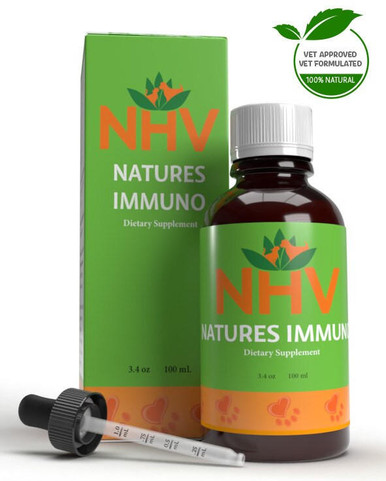
What Is It?
A natural supplement that supports your cat’s immune system, boosts energy, and promotes overall well-being. It can be used alongside cancer treatments and helps support cardiovascular, endocrine, and kidney health.
How Does it Work?
Why Should I Trust It?
Natural mushroom blend formulated by veterinarians.

Medicinal mushroom blends are used by holistic and conventional veterinarians to help cats suffering from a variety of health conditions. Their immune supporting effects help with feline cancer, chronic feline infections, liver disorders, compromised immune systems, endocrine disorders, and kidney, respiratory, and cardiovascular problems.
Medicinal mushrooms are currently being researched and studied for their vast array of health benefits. NHV uses these mushrooms as a primary ingredient in supplements that support the immune system of cats.
The healing power of medicinal mushrooms has been known throughout Asia for thousands of years. The pharmacological potential of medicinal mushrooms is being extensively studied around the globe. Research is finding that specific medicinal mushrooms, like Turkey Tail mushrooms, may have the potential to help treat cancer, balance the immune system, and aid with digestive problems.
“The mounting evidence from various research groups across the globe, regarding anti-tumor application of mushroom extracts unarguably make it a fast-track research area worth mass attention.” – (Patel and Goyal, 2012)
The five well-researched mushrooms contained in our vet-formulated cat immune support supplement blend include:
Because this blend is in liquid form, it helps increase the bioavailability of the mushrooms, so your cat absorbs the medicine at a faster rate.
Use NHV’s holistic immune cancer support for cats with treatment prescribed by your vet for comprehensive care. You can always ask the experts at NHV where our pet experts are here to help answer questions, offer guidance and give support along the way.
Read more about cat immune support using the miracles of medicinal mushrooms on our blog because, at NHV, we care about your cat’s health naturally.
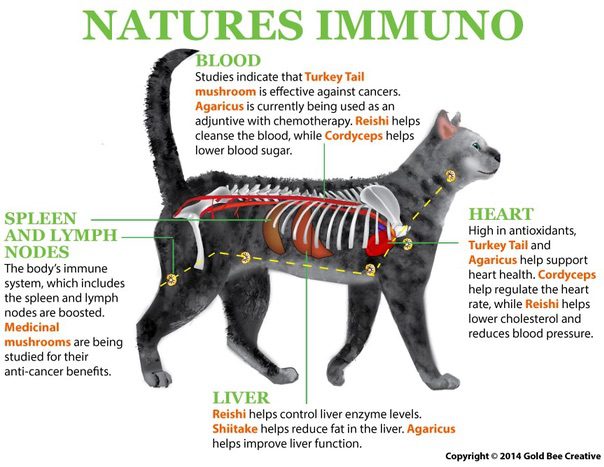
Turkey Tail mushroom has traditionally been used in Native American herbalism and in Chinese medicine to help improve immune function. It is a mushroom that has undergone a considerable resurgence in modern research for its health benefits. Studies have shown that it is beneficial for a wide variety of cancers, including mammary gland cancer and lymphoma. Researchers believe that Turkey Tail mushrooms contain properties that fight cancer while also helping to strengthen the immune system. It has antioxidant, anticarcinogenic, immune-modulating, anti-inflammatory, and cardioprotective properties.
Cordyceps mushroom is rich in phytonutrients and contains polysaccharides, which help with antioxidant properties. Research has indicated that cordyceps have anti-tumor, immune stimulating and hypoglycemic activity. They are beneficial for diabetes as they help lower blood sugar. Cordyceps are also beneficial for heart health, liver and kidney health.
Reishi mushroom has been used for thousands of years in traditional Chinese Medicine. Current research indicates that reishi mushrooms are helpful in supporting the immune and cardiovascular systems, as well as helping to increase oxygenation of the blood. Reishi is effective against sarcoma and tumor necrosis. Reishi is currently being used in Japan and China in conjunction with chemotherapy drugs.
Shiitake mushroom has been used for thousands of years in herbalism, and is also a popular cooking ingredient. Research indicates that Shiitake has strong antibiotic and antibacterial properties against a broad spectrum of pathogens. In addition to its potential cancer-fighting properties, it is useful in supporting heart health as it lowers cholesterol and helps lessen plaque in the arteries.
Agaricus mushroom is studied for their usefulness in preventing cancer cell production. Agaricus is considered an antimutagenic and an adaptogen, which helps combat stress and supports endocrine function. It is useful for pets with autoimmune conditions, digestive issues, and heart problems. Agaricus is being used in Japan as an adjunctive with chemotherapy treatments.
Select your pet's weight to determine the correct dose.
To be taken twice daily.
Determine your pet’s weight and then use the easy chart below to determine the correct dose. You can safely double the recommended dosage.
Pet's Weight Dosage
0 - 15 lb 0.5 mL
16 - 30 lb 1.0 mL
31 - 45 lb 1.5 mL
46 - 60 lb 2.0 mL
61 - 75 lb 2.5 mL
Over 75 lb 3.0 mL
How to Administer
Shake well before use. The easiest method is to use the dropper provided and place the drops into your pet’s food or favorite treat. You can also use the dropper and squirt directly into the pet’s mouth. Some pets can be finicky, if this occurs consider hiding the drops in foods most pet’s love such as fish, chicken, yogurt, or a favorite treat. If your pet only eats dry food then soak a few kibbles at feeding time.
For Best Results
Herbal dietary supplements are beneficial to the health and well-being of your pet and are safe for long-term use. Every pet responds to natural herbal supplements differently, therefore it is important to be consistent and administer the product daily. Supplements generally take two to four weeks to take effect, however this will vary from one animal to the next.
Product Storage
All NHV Natural Pet Products are pure herbal extracts and contain no artificial additives, preservatives or coloring. Shelf life after opening is 6 months and must be refrigerated after opening.
Medicinal mushroom blends are used by holistic and conventional veterinarians to help cats suffering from a variety of health conditions. Their immune supporting effects help with feline cancer, chronic feline infections, liver disorders, compromised immune systems, endocrine disorders, and kidney, respiratory, and cardiovascular problems.
Medicinal mushrooms are currently being researched and studied for their vast array of health benefits. NHV uses these mushrooms as a primary ingredient in supplements that support the immune system of cats.
The healing power of medicinal mushrooms has been known throughout Asia for thousands of years. The pharmacological potential of medicinal mushrooms is being extensively studied around the globe. Research is finding that specific medicinal mushrooms, like Turkey Tail mushrooms, may have the potential to help treat cancer, balance the immune system, and aid with digestive problems.
“The mounting evidence from various research groups across the globe, regarding anti-tumor application of mushroom extracts unarguably make it a fast-track research area worth mass attention.” – (Patel and Goyal, 2012)
The five well-researched mushrooms contained in our vet-formulated cat immune support supplement blend include:
Because this blend is in liquid form, it helps increase the bioavailability of the mushrooms, so your cat absorbs the medicine at a faster rate.
Use NHV’s holistic immune cancer support for cats with treatment prescribed by your vet for comprehensive care. You can always ask the experts at NHV where our pet experts are here to help answer questions, offer guidance and give support along the way.
Read more about cat immune support using the miracles of medicinal mushrooms on our blog because, at NHV, we care about your cat’s health naturally.

Turkey Tail mushroom has traditionally been used in Native American herbalism and in Chinese medicine to help improve immune function. It is a mushroom that has undergone a considerable resurgence in modern research for its health benefits. Studies have shown that it is beneficial for a wide variety of cancers, including mammary gland cancer and lymphoma. Researchers believe that Turkey Tail mushrooms contain properties that fight cancer while also helping to strengthen the immune system. It has antioxidant, anticarcinogenic, immune-modulating, anti-inflammatory, and cardioprotective properties.
Cordyceps mushroom is rich in phytonutrients and contains polysaccharides, which help with antioxidant properties. Research has indicated that cordyceps have anti-tumor, immune stimulating and hypoglycemic activity. They are beneficial for diabetes as they help lower blood sugar. Cordyceps are also beneficial for heart health, liver and kidney health.
Reishi mushroom has been used for thousands of years in traditional Chinese Medicine. Current research indicates that reishi mushrooms are helpful in supporting the immune and cardiovascular systems, as well as helping to increase oxygenation of the blood. Reishi is effective against sarcoma and tumor necrosis. Reishi is currently being used in Japan and China in conjunction with chemotherapy drugs.
Shiitake mushroom has been used for thousands of years in herbalism, and is also a popular cooking ingredient. Research indicates that Shiitake has strong antibiotic and antibacterial properties against a broad spectrum of pathogens. In addition to its potential cancer-fighting properties, it is useful in supporting heart health as it lowers cholesterol and helps lessen plaque in the arteries.
Agaricus mushroom is studied for their usefulness in preventing cancer cell production. Agaricus is considered an antimutagenic and an adaptogen, which helps combat stress and supports endocrine function. It is useful for pets with autoimmune conditions, digestive issues, and heart problems. Agaricus is being used in Japan as an adjunctive with chemotherapy treatments.
Select your pet's weight to determine the correct dose.
To be taken twice daily.
Determine your pet’s weight and then use the easy chart below to determine the correct dose. You can safely double the recommended dosage.
Pet's Weight Dosage
0 - 15 lb 0.5 mL
16 - 30 lb 1.0 mL
31 - 45 lb 1.5 mL
46 - 60 lb 2.0 mL
61 - 75 lb 2.5 mL
Over 75 lb 3.0 mL
How to Administer
Shake well before use. The easiest method is to use the dropper provided and place the drops into your pet’s food or favorite treat. You can also use the dropper and squirt directly into the pet’s mouth. Some pets can be finicky, if this occurs consider hiding the drops in foods most pet’s love such as fish, chicken, yogurt, or a favorite treat. If your pet only eats dry food then soak a few kibbles at feeding time.
For Best Results
Herbal dietary supplements are beneficial to the health and well-being of your pet and are safe for long-term use. Every pet responds to natural herbal supplements differently, therefore it is important to be consistent and administer the product daily. Supplements generally take two to four weeks to take effect, however this will vary from one animal to the next.
Product Storage
All NHV Natural Pet Products are pure herbal extracts and contain no artificial additives, preservatives or coloring. Shelf life after opening is 6 months and must be refrigerated after opening.
cancer support
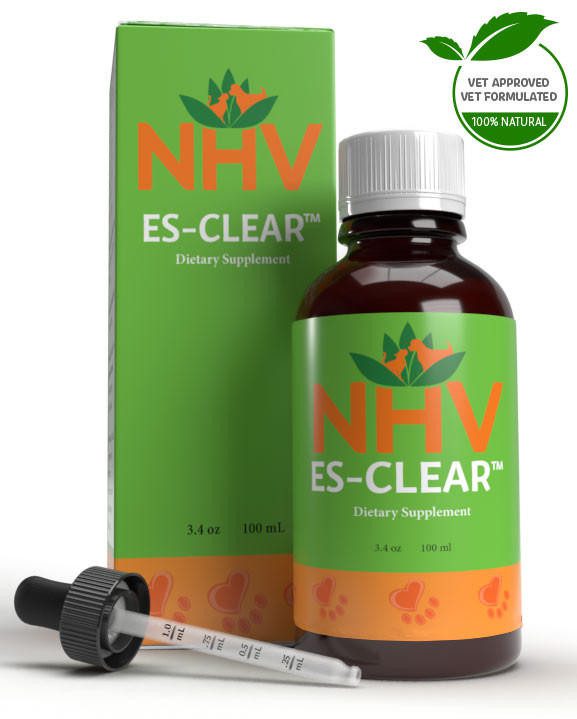
Natural cat cancer support
buy 2 and save $3
3 month supply for a small to medium size pet.
What is it?
Feed your cat ES Clear™ to help support them through cancer as part of their overall holistic cat cancer treatment plan recommended by your vet.
How Does it Work?
Why Should I Trust It?
100% natural herbal pet supplement formulated by veterinarians.

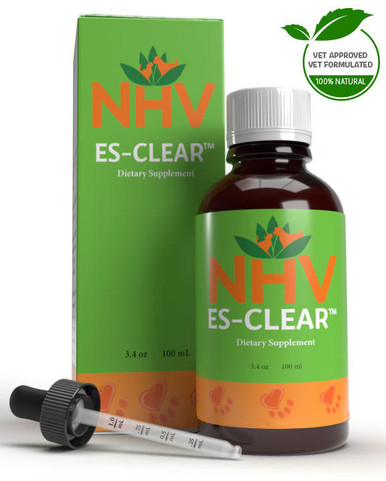
What is it?
Feed your cat ES Clear™ to help support them through cancer as part of their overall holistic cat cancer treatment plan recommended by your vet.
How Does it Work?
Why Should I Trust It?
100% natural herbal pet supplement formulated by veterinarians.

Support your cat’s healing naturally with NHV’s ES-Clear, a well-balanced dietary supplement that is vet-approved to help manage symptoms of feline cancer. ES-Clear contains four highly effective herbs that promote health and are safe to be given long-term in conjunction with conventional treatment.
In addition, ES Clear, natural cat cancer support helps:
The potent blend of herbs found in ES-Clear will target critical areas in the body such as the kidneys, liver, stomach, major arteries as well as the spleen and lymph nodes which make this an excellent supportive cat cancer care.
NHV Natural Pet Products contains pure herbal extracts with no artificial additives, preservatives or coloring. They’re formulated by a master herbalist and holistic veterinarian with over 50 years of combined experience. You can read more about cat cancer treatments that can augment a vet-recommended cancer treatment plan on Dr. Hillary Cook's blog.
Pet parents that found ES-Clear beneficial also found Turmeric for cat cancer symptoms to be helpful. If you are unsure of which products would best help your feline family member, you can schedule a consultation because, at NHV, we want your kitty to pounce back to purrfect health naturally.
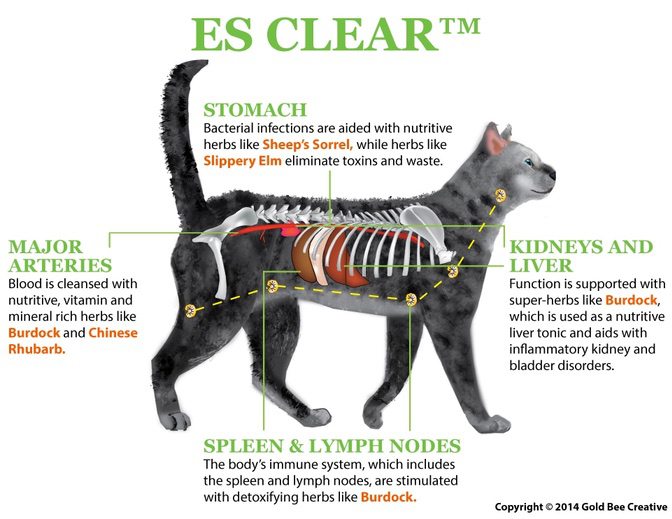
Burdock - This vitamin-rich powerful herb supports the liver, helps to clean the blood in major arteries and even has free-radical scavenging properties.
Sheep’s Sorrel - This potent herb contains a healthy source of vitamins and minerals, such as beta-carotene which is high in antioxidants.
Slippery Elm - Another vitamin and mineral-rich herb that also contains anti-inflammatory properties that aid in soothing stomach irritations which can be made worse due to the side effects of some conventional cancer medicines.
Chinese Rhubarb - Due to the powerful astringent properties of this herb, there is an increase in the removal of toxins and an improvement in gallbladder function. Chinese Rhubarb also helps the appetite, which can suffer due to the side effects of many cat cancer treatment medicines.
Select your pet's weight to determine the correct dose.
Support your cat’s healing naturally with NHV’s ES-Clear, a well-balanced dietary supplement that is vet-approved to help manage symptoms of feline cancer. ES-Clear contains four highly effective herbs that promote health and are safe to be given long-term in conjunction with conventional treatment.
In addition, ES Clear, natural cat cancer support helps:
The potent blend of herbs found in ES-Clear will target critical areas in the body such as the kidneys, liver, stomach, major arteries as well as the spleen and lymph nodes which make this an excellent supportive cat cancer care.
NHV Natural Pet Products contains pure herbal extracts with no artificial additives, preservatives or coloring. They’re formulated by a master herbalist and holistic veterinarian with over 50 years of combined experience. You can read more about cat cancer treatments that can augment a vet-recommended cancer treatment plan on Dr. Hillary Cook's blog.
Pet parents that found ES-Clear beneficial also found Turmeric for cat cancer symptoms to be helpful. If you are unsure of which products would best help your feline family member, you can schedule a consultation because, at NHV, we want your kitty to pounce back to purrfect health naturally.

Burdock - This vitamin-rich powerful herb supports the liver, helps to clean the blood in major arteries and even has free-radical scavenging properties.
Sheep’s Sorrel - This potent herb contains a healthy source of vitamins and minerals, such as beta-carotene which is high in antioxidants.
Slippery Elm - Another vitamin and mineral-rich herb that also contains anti-inflammatory properties that aid in soothing stomach irritations which can be made worse due to the side effects of some conventional cancer medicines.
Chinese Rhubarb - Due to the powerful astringent properties of this herb, there is an increase in the removal of toxins and an improvement in gallbladder function. Chinese Rhubarb also helps the appetite, which can suffer due to the side effects of many cat cancer treatment medicines.
Select your pet's weight to determine the correct dose.
Published: December 18, 2019